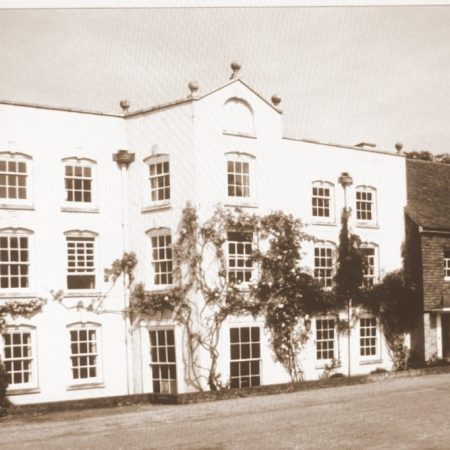Letters sent by Royal Mail have always been paid for, but not by the privileged few. From 1652, Members of Parliament could send official letters free, providing they wrote their signature on the front. This was the privilege of ‘Free Franking’. The system was abused, and so in 1705 the first of many Parliamentary Acts was passed to regulate the system. The commonest abuses of free franking were for M.Ps. to sign the front of letters written by friends and relatives, to sign blank sheets of writing paper and hand them out as gifts, or even to sell signed sheets to the general public.
Housed in the Hampshire Record Office is the Sturges-Bourne family archive [HRO ref 9M55], which sheds light on these abuses. William Sturges-Bourne M.P. lived at Testwood House, and his daughter Ann was a prolific letter writer to her best friend, Marianne Dyson, in Sussex. There are examples of her father signing Anne’s letters to ensure they were sent free, whilst others are signed by friends of the family or visitors, who were also MPs.
Some of Ann’s letters were charged however, because in 1828 [HRO ref 9M55/F6/36] she wrote to Marianne saying that ‘Papa has written to scold the Petworth man for charging my letters’, [and Papa] ‘has gone to edify the Totton Postmaster’. The Totton Postmaster, wise to the abuse, would have written the number ‘7’ on the letter, the charge in pence to be paid on receipt in Petworth, and ‘the Petworth man’ was the postmaster who delivered the letter, and collected the seven pence, which was about one third of a labourers daily wage. In 1823 [HRO ref 9M55/F11/5], Ann wrote ‘Papa is busy in the House’ (Parliament), and ‘will frank a letter when he comes home’. She later wrote on the problems of sending letters. I have ‘unfinished letters to John and Caroline and other people, to be forwarded by the basket’…..’one note perhaps for the post, one to go to Romsey by the Baker’s cart, one to Southampton by the Poulter’s wife, [and] one to Miss Timson by anybody who goes that way’.
Royal Mail had the monopoly over letter carriage, and so those by the [carrier’s] basket, the Baker’s cart, the Poulter’s wife, and the one to Miss Timson, were illegal. Evading high postal charges on letters and packets was widespread throughout most levels of society, and was regarded much as tax evasion is today. Free Franking of any kind was abolished in 1840, with the introduction of the penny post.
A list of ‘irregularities’, regarding the payment of postage, by no means exhaustive, at the Hampshire Record Office can be accessed here. It gives a glimpse into the murky world of evasion in the Sturges Bourne/Dyson correspondence.


Contributed by Roger Harris, January7th 2020.

